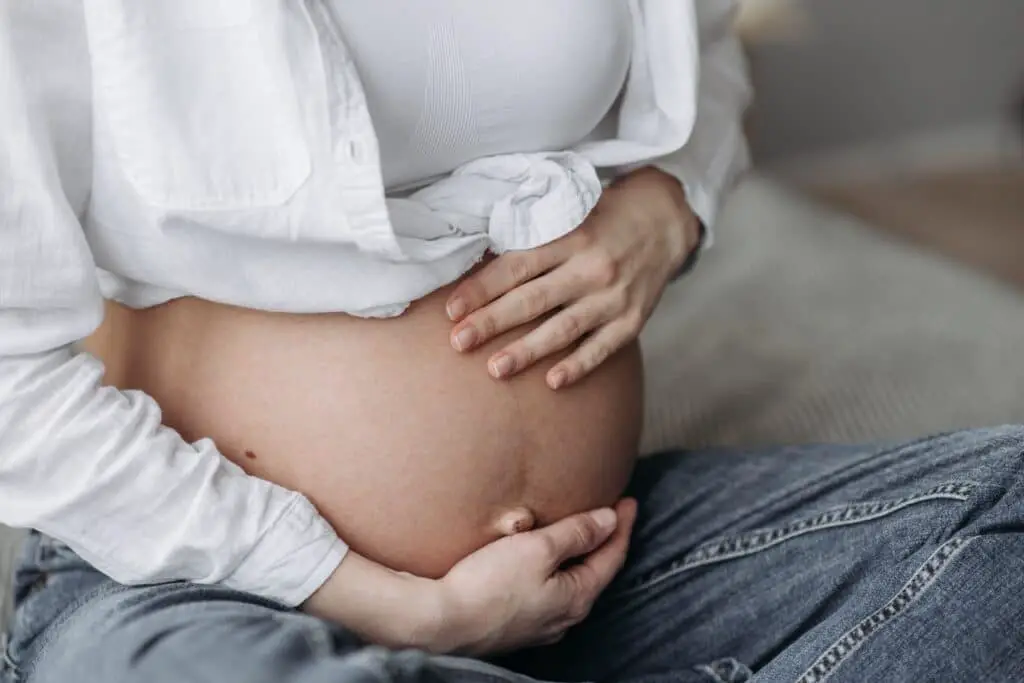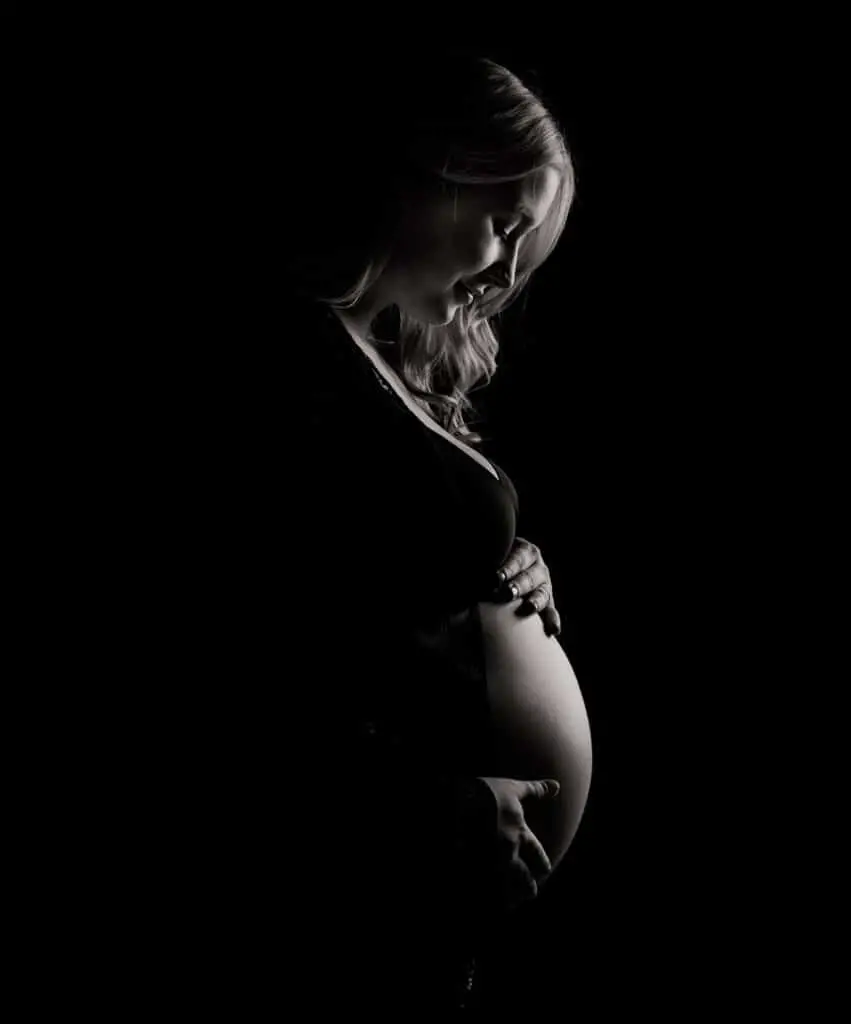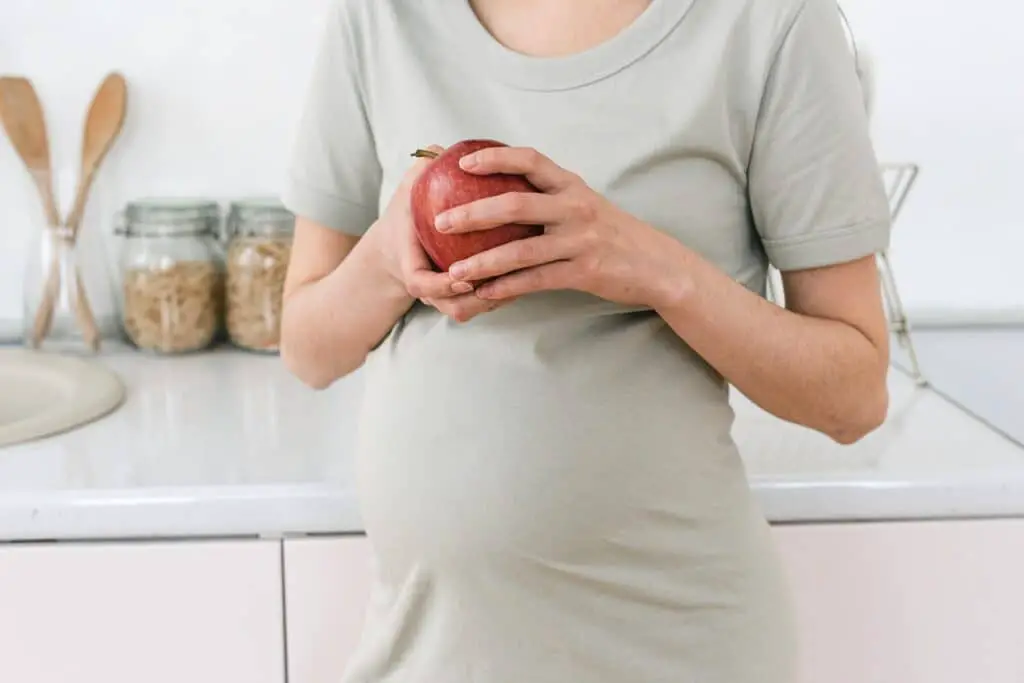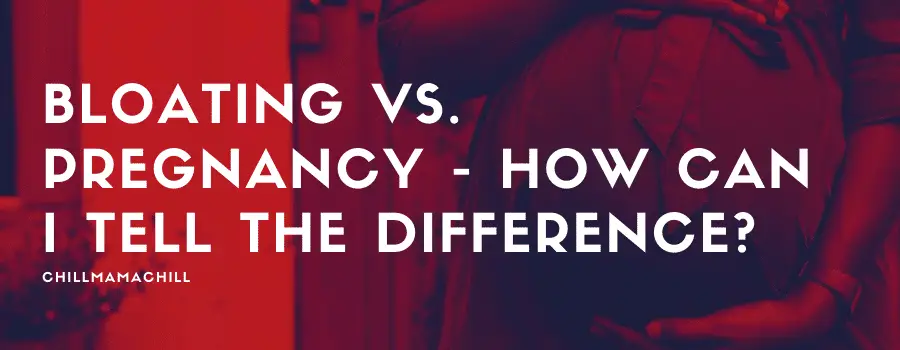Early signs of being pregnant vary from one individual to another. Within the first week, you’ll feel your body going through changes, or there may not be any symptoms at all. Having not missed your period yet, you’re wondering about bloating vs. pregnancy, how can I tell the difference?
Bloating is the fullness of your stomach and can include abdominal distention. While many signs of early pregnancy aren’t unique, they can cause the feeling of being bloated. But without testing, there’s no reliable way of telling the difference between the two conditions.
Early pregnancy symptoms include fatigue, morning sickness, tender or swollen breasts, and the need for constant urination. However, since being pregnant isn’t the only cause of bloating, it’s essential to find out the root so that you can take remedial steps. Read on to find out how you can tell the difference between stomach distention, gas, and a baby bump.
What Is Bloating, and What Causes It Other Than Pregnancy
Bloating isn’t abnormal, and chances are that you’ve bloated severally before. Similar to a full stomach, you’ll feel as if you’ve overeaten, or like your tummy is full of trapped gas. In an extreme case, it’ll cause distention of your belly, which is why you might be confusing it with pregnancy.

If you’re in the early weeks, your baby bump won’t show, and most likely, you’re experiencing bloating. That’s as a result of being pregnant. You may also experience bloats caused by hormonal changes. That slows down your digestive system, leading to a buildup of digesting food and gas.
The hormones progesterone, and to a degree, estrogen cause many of your pregnancy’s less-glamorous symptoms. These include breast tenderness, nausea, and slowing down food, which causes feeling full, gas, and a distended stomach.
Other causes of bloating include;
Your Periods
Whether you’re pregnant or not, progesterone and estrogen levels rise whenever you reach the end of your menstrual cycle. That’s a natural body function, and it’s why you might suspect pregnancy instead of normal bloating.
Before your monthly period shows up, you’ll have soreness in your breasts, feel a little run down or sick and suffer loads of bloat.
Gassy Food and Carbonated Drinks
Another reason for confusing bloating and pregnancy is eating foods that can increase gas. These include cabbage, beans, Brussels sprouts, and cauliflower. Carbonated beverages are also culprits, tasting good but leaving you with a carbon dioxide bloat.
Ovarian Cysts
You’ll experience increased bouts of bloating if you have ovarian cysts, which are fluid-filled sacs that line your ovaries. Common during your monthly period, these can form anytime, filling your tummy full of gas.
Fast Feeding
When you eat or swallow too fast, cubic feet of air also find their way into your gut. The extra wind leads to bloating if you can’t release the gas by belching or flatulence. Drinking from a straw or chewing gum can also result in excess stomach distention.
How Can I Tell If My Bloating Is Due to Pregnancy?
Your bloating could be pregnancy-related, especially if you’ve been sexually active since your last monthly period. We’ve seen other factors that can cause gassy stomach distention. So, you must rule out a baby bump by looking for other accompanying symptoms.

Whether or not you track your menstrual cycle, or haven’t missed a period, you can use a home pregnancy test for certainty. While typically accurate, use these kits on the day your period is supposed to come. If you’re not sure about the results, such as in a false-positive scenario, blood testing by your doctor should confirm or dispel being pregnant.
Now that you know about progesterone and estrogen increases within your usual menstrual cycle, other early signs of pregnancy that should come along with bloating include;
Bleeding or Spotting
Light bleeding, lesser than your period, indicates implantation. That means the fertilized egg or zygote has been implanted onto your uterus. Spotting is an early pregnancy sign that occurs approximately six days after you conceive and can be accompanied by bloating.
Fatigue and Lethargy
Nothing says pregnancy louder than unexplained fatigue. That starts within the first week of conception as high progesterone levels increase insomnia and restlessness.
Besides developing early, these symptoms, alongside a lethargic feeling of only wanting to stay in bed, can continue throughout the nine-plus months. However, as you near your due date, sleepiness and fatigue increase.
Frequent Toilet Visits
You’d think that later pregnancy has reason to cause you to urinate constantly due to pressure on the bladder by your now enlarged baby bump. But it’s also a sign that occurs in the first couple of weeks. Changing hormone levels will have you running to the toilet now and then. It’s these that also cause digestive system slowdown and bloating.
Nausea or Morning Sickness
As one of the most iconic pregnancy giveaways, nausea, also misnamed morning sickness, starts as early as the fourth week. You’ll vomit and have aversions to certain foods or smells, but while these signs can also appear late, it should be before the end of nine weeks.
Changes in Your Breasts
Breasts will start changing from the fourth to the sixth week of pregnancy, but they can also be earlier. Your boobs will feel tender and swell in size due to the increased action of the estrogen hormone levels. But that also happens to many women before their periods. So, check for darkening areolas or those dark circles surrounding your nipples.

When to Expect Pregnancy-Related Bloating
After uterine implantation, which occurs between nine and ten days after ovulation, bloating will appear. For some, you may not bloat at your pregnancy’s onset as it can sometimes take progesterone days to build up levels in your system.
Bloating during pregnancy is as unique as each baby bump you carry. When I had my first, I bloated from five weeks onwards until near the end of my second trimester. But that doesn’t mean it can’t be the initial indicator that you’re in the baby way, seeing as everyone is different.
When pregnant, estrogen and progesterone levels increase to over forty times that of a non-pregnant woman. It’s also easy to feel like conception has happened when it hasn’t, as you’ll feel sickly, run-down, and bloated before or during your periods.
Conclusion
Trying to figure out whether what you feel is bloating or pregnancy? You can now tell the difference, simply by looking for other baby bump-like symptoms that differ in intensity from your normal menstrual cycle body functions. After using a home pregnancy test kit, talk to your doctor if the bloat persists. A blood work exam will detect the hormone levels and reliably confirm you’re pregnant.

I’m Cathrine and I’m a 39-year-old mother of 3 from Utica, New York. And I’m extremely happy you’ve come to visit my hide-out on the web. Here I post about everything related to family-life and usually it will involve babies and lessons I’ve learned over the years from experts, friends, and my own mistakes. So hopefully you will find what i write fun and informational!

